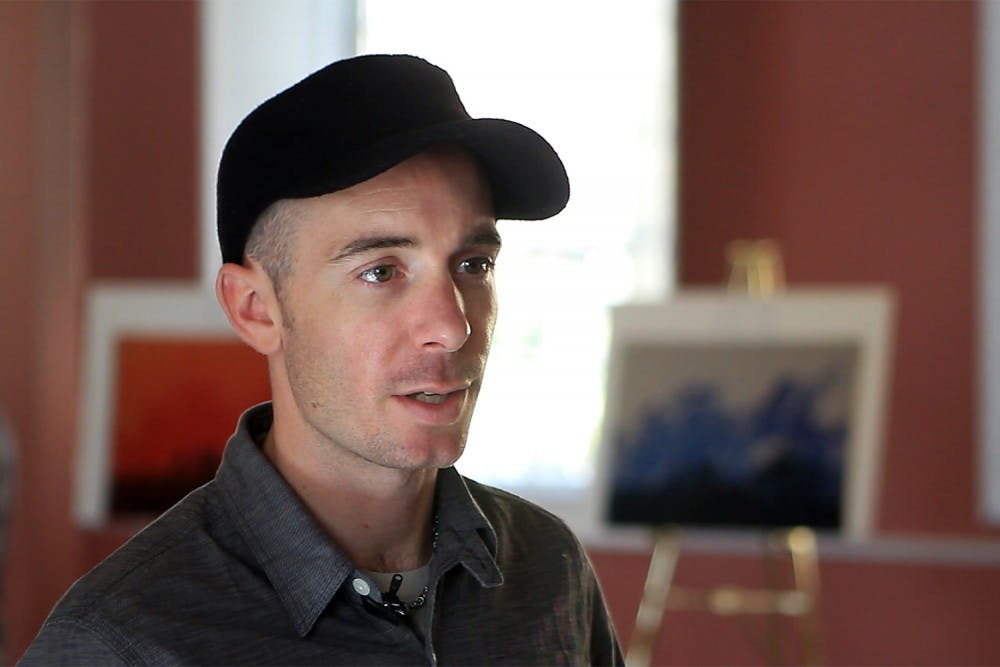It was an idyllic scene, and he pulled a camera out to capture the moment. Each time he touched his camera, though, the girls ran out of sight. Realizing the cultural aversion to photographs, Stevenson began a game of “Simon Says” instead, making funny faces at the little girls as they erupted in giggles.
Touching moments like this one stand out to Stevenson just as much as the hard ones — moments like losing three close friends while serving in Afghanistan. He had the chance to transform those memories through the Combat Paper Project, which took up residence in Gerrard Hall on Friday and Saturday.
Combat Paper Project co-founder Drew Cameron gave visitors tutorials in making their own paper using retired military uniforms. Stevenson brought his U.S. Army uniform, cut it up, put it into a machine that beat it into pulp, and then turned it into paper — a process he called a liberating experience.
“It was a way to turn it into a visual representation of my service,” said Stevenson, now a senior attending UNC through the GI Bill. “It’s an artifact from my service, but it was liberating in the sense that it’s no longer kept away in this box where I don’t see it, no one else sees it. It’s a piece of art. I can display it in my house and I’ll be able to keep it for years to come.”
The workshop was open to the public and saw well over 100 visitors, including veterans, students, UNC faculty and community members. Participants learned how to sift the pulped uniforms through a bin of water, press the fibers onto a felt board and decorate their newly made paper with a stencil and dyed pulp. The finished product was then hung to dry for a day.
Visitors came from as far as Richmond, Va., said Aaron Shackelford, Mellon post-doctoral fellow at Carolina Performing Arts, which hosted the workshops.
“One thing that really struck me is the range of people who have come,” Shackelford said.
The program was brought to UNC by way of the Kronos Quartet, who will perform at Memorial Hall on Feb. 12 to commemorate the World War I centennial, but Shackelford said it was particularly important because of North Carolina’s military ties.




